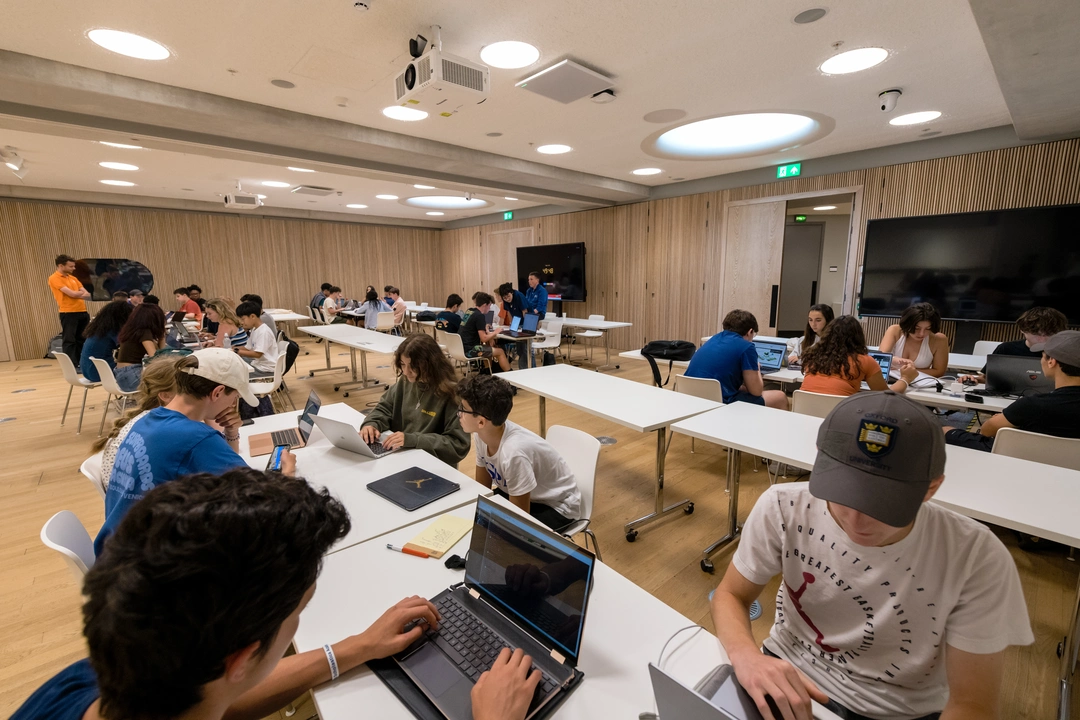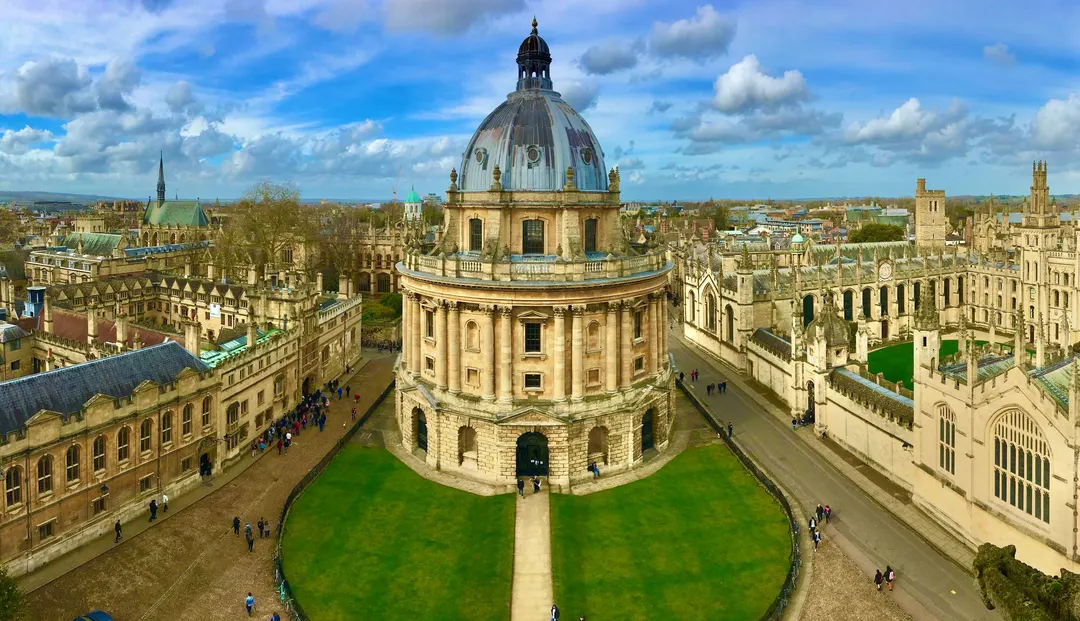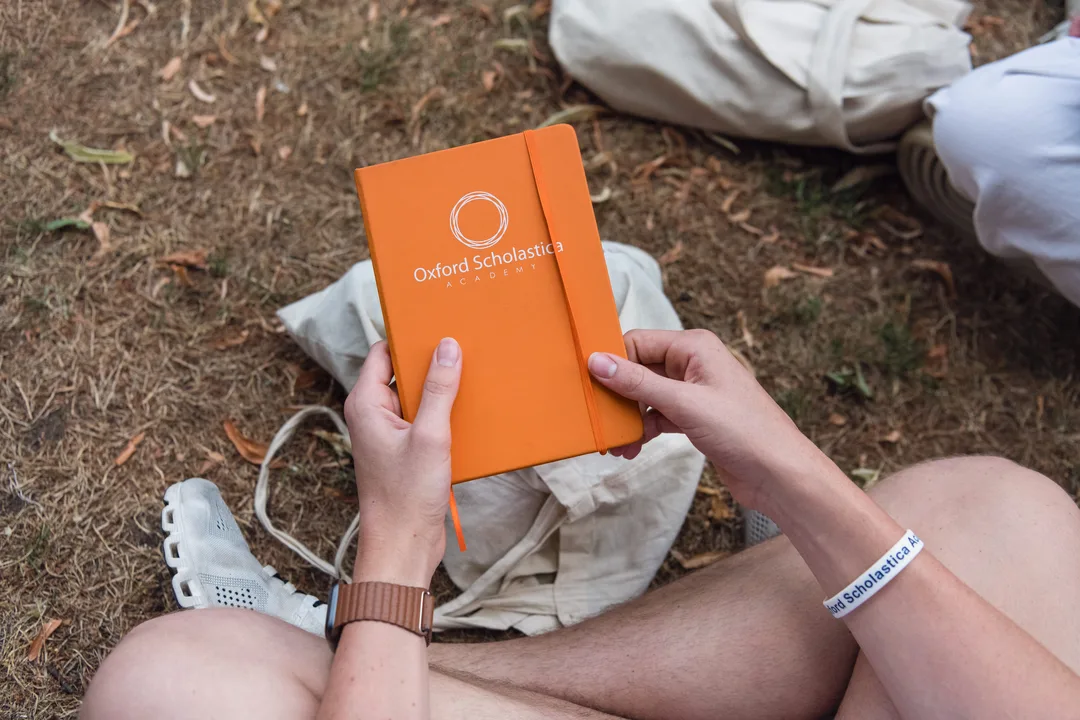Hello! I’m Alyssa, one of the Creative Writing tutors at the Oxford Scholastica Academy. In addition to my wonderful role at Oxford Scholastica, I’m an editor and a DPhil (PhD) student of Literary Translation at the University of Oxford (which is separate from Oxford Scholastica), where I also teach and convene discussion groups.
Luckily, my work at Oxford Scholastica starts after term time ends, so I have significantly fewer responsibilities to juggle alongside the Creative Writing course. Nevertheless, a day in the life as a summer school tutor is never boring!
Slow Mornings
With the Creative Writing classes beginning at 11am, I can start my day off slowly. I make coffee, have breakfast and respond to all the emails that come in for my different roles. I also use this time to think about the day ahead and make my to-do list, so that by the time I’m out the door, I have a realistic plan in mind.
Classes are held at the Blavatnik School, a noticeably modern and high-tech building opposite the more architecturally classic Oxford University Press. I reckon this opposition is a perfect representation of the city!
I stroll in early because it’s a short walk for me, occasionally picking up a second coffee from the Opera Café (I definitely recommend them for lunch as well) and chatting with the other tutors in the corridors. We talk about how the week is going and the dynamic in our classes, sometimes sharing tips and ideas, too. By the end of the first week, we form a real bond.
Teaching
From 11am, I have two hours to teach that day’s subject material. There’s always so much to talk about in creative writing so it almost never seems like enough time.
I give my students writing prompts or challenges to get them writing as soon as they sit down, and we always review them by the end of the session so they can apply the techniques or ideas covered in the lesson.
To keep my lessons dynamic and active, I combine independent writing, analysing extracts from famous pieces of literature, small group and whole class discussions, and getting the students to plan stories together. If they’re feeling really brave, they perform their dialogues for the class, too.

After class
I usually stay in the classroom for a few minutes after the session ends in case anyone wants to stay behind to ask a question about the content we covered or any of their written work. I also use this time to send the students the presentation slides from that day, along with a a reminder of the independent study tasks I’ve set.
If I feel that certain tasks or activities didn’t work so well with my group, then I adjust the following days’ ones to better match their dynamic. I find that each group differs so much that I always need to make a small adjustment between cohorts.
Naturally, it’s lunch time when class is over. If I’ve been super organised, then I have my packed lunch, which I eat in either a green space like the University Parks or in the common room of one of Oxford’s gorgeous libraries. If I haven’t, then I pick something up from either of my favourite cafés: Tree Artisan on Little Clarendon Street or Taylor’s on Woodstock Road (I especially love their smoothies). Both of these are must-tries for anyone coming to Oxford.
Afternoons in the Library
I usually reserve my afternoons for getting on with my PhD thesis work. Because I can’t seem to get much work done outside of the library, I typically head to either the Taylor Institute, which serves as the modern European Languages library, or the famous Old Bodleian library in the centre of the city. Both libraries boast beautiful interiors and there’s significantly more space outside of term time for graduate students to work in.
Working on my PhD
The nature of my research is interdisciplinary, so I have many different fields to consider and lots of critical reading across literature, translation, history and decolonisation theory to do. I don’t mix and match my tasks too much in a day, so I either spend my hours in the library reading and taking notes on theories and critical studies, analysing the translation methods used in the Algerian texts that I’m writing about, or writing up a chapter.
Unlike in STEM research, writing in the humanities is generally approached as an ongoing process from day one, rather than closer to the end after conducting experiments and collecting data. So, I need to try and keep my writing momentum throughout the year, although I definitely spend a lot of my time staring out the window, hoping for some inspiration.

Marking students’ work
Once a week, I also need to mark my Oxford Scholastica students’ work. These are the creative writing pieces that I provide feedback on to see if the students have taken in what we’ve learnt. I also use my industry experience to give them top tips on their writing.
Marking their work takes time. I usually need two afternoons to get through it all given that creative writing is so detailed, and I want to ensure that they’re getting thorough and helpful feedback from me. However, I do find it immensely enjoyable because it helps me get to know my students better, and to understand their writing styles and literary interests as well.
Plus, occasionally, students have written pieces impressive enough for me to suggest they submit it to a literary magazine.
Me-Time Evenings
My evenings are where I finally allow myself some flexibility. If I have a book to edit (as part of my freelance work), and I usually do, then I leave this as an early-evening task. While it is work, it’s something that brings me joy, and means I have lots of insider info about upcoming books!
I promise that I have a life outside of work, too. Because a PhD is like a full-time job and doesn’t follow the rules of term dates, most of us stick around during the summer. So, I make sure to see some friends at least once a week so we can decompress, catch up and vent about life as a graduate. The summer is obviously the best time for this because we can be out in the University Parks or make use of outdoor seating. Plus, Oxford’s best feature (for me) is its late-night bagel and ice cream café, G&Ds – another must-try if you’re in the city.
Finally, I need time for myself. Once I’ve triple-checked that I have all my resources ready for the next day’s class, I get into my *relaxed* mode. I either watch something on Netflix while crocheting or I read – and the latter is something I repeatedly encourage to all my students, reading makes us better writers!

By Alyssa Ollivier-Tabukashvili
Alyssa is a PhD student of Literary Translation at the University of Oxford. She has a Bachelor of Arts degree in Creative Writing from the University of East Anglia, and has edited and proofread a number of fiction and non-fiction books for Hodder & Stoughton.





